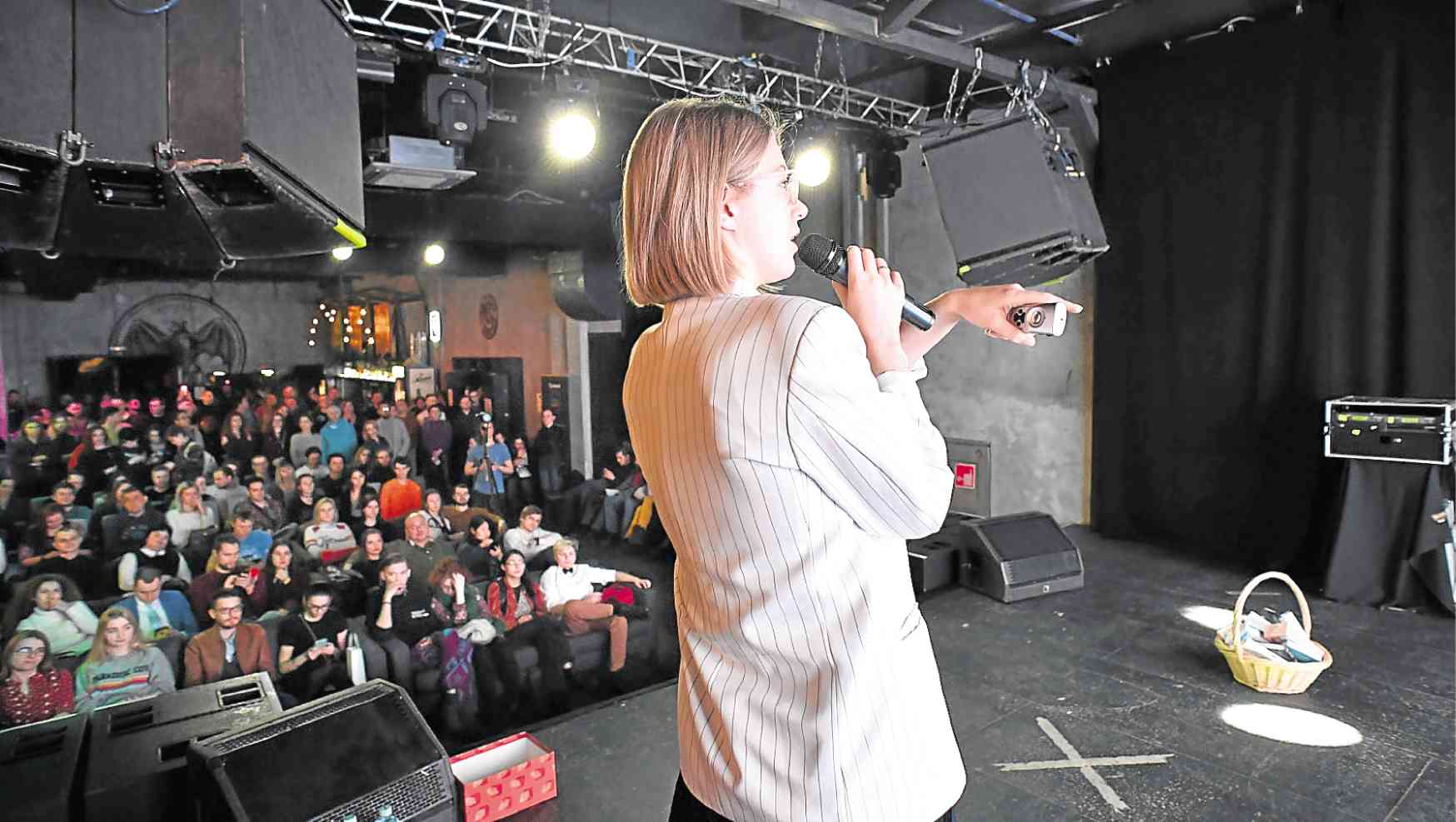Russians turn to sex coaches to overcome Soviet-era taboos

SATISFIED WOMAN Sex coach Yelena Rydkina addresses an audience at a market of erotic accessories in Moscow. —AFP
MOSCOW—Surrounded by erotic toys, half a dozen women of all ages sit in a central Moscow basement facing a whiteboard as a sex coach trains them in speaking openly about their sexual desires.
“I finally want to know what it’s like to be a satisfied woman, what sexual pleasure is,” one of the “students,” age 45 and divorced, told Agence France-Presse (AFP).
Barely spoken about publicly in Soviet times and with the Kremlin pushing conservative values in recent years, sex, as a subject, remains largely an unmentionable in Russia.
To help people overcome their shyness in talking about sexual pleasure, sexologist training courses, psychologists and so-called sex coaches are now appearing in Moscow, adding to TV shows and articles in women’s magazines.
Psychological barriers
Viktoria Ekaterina Frank, a psychologist and sexologist, said that her course at the Sex.rf school did not aim to teach sex techniques but rather “help women understand the psychological barriers engrained in their heads.”
Many women are “so embarrassed to talk about sex, they can barely breathe,” she said.
Nearly three decades after the end of the Soviet Union, Russian society remains deeply marked by the aura of taboo around the issue of sex, sociologists say.
Soviet authorities primarily promoted the idea that “the sexual act should serve only for reproduction,” sociologist Yelena Kochkina told AFP. “This means that sexuality was not talked about in the family or at school,” she said.
Although it was off-limits in public discourse in the Soviet era, everyone was having sex and “maybe even too much,” said Dmitry Rogozin, a sociology professor.
Crazy boom
When the Union of Soviet Socialist Republics collapsed in 1991, a sex industry burst on to the scene, with a wave of erotic films on video cassette or in cinemas, magazines with racy photos and adverts in the popular press.
Sex coach Yelena Rydkina said that after the initial “crazy boom in interest,” suddenly it became too much, causing fear and rejection, and people turned away. —AFP